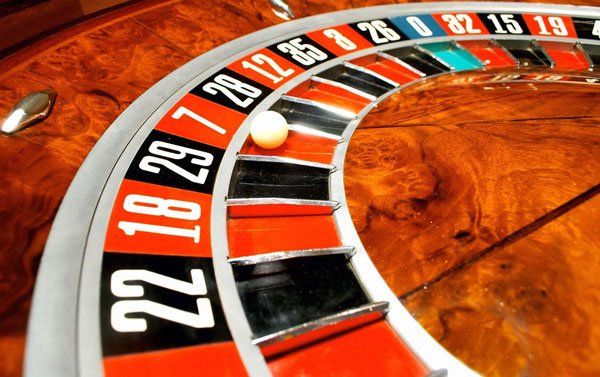
Used for indicative purpose only
Successive state governments in the hill state have been trying to promote Eco and Adventure tourism. As per them these formats of tourism could increase numbers and revenues for both public and government exchequer. However besides the organic growth per annum, nothing out of the box could ever get delivered till date from the exercise. Yet year after year in every budget speech successive Chief Ministers have announced promotion of either ‘Ecological’ or ‘Adventure’ based tourism as their game changer plan. Though the evident truth remains that 17% of the total hill state budget goes in repayment of loans and their interests and tourism based revenue could not become a game changer as been claimed or expected. ‘Out of the box thinking is required to promote tourism,” had stated Vikramaditya Singh first time MLA. In his first speech at the Himachal Vidhan Sabha, the young turk had batted strongly for a concept like Casinos to be introduced in the state.
According to experts Casinos hold a niche market in the country. Despite the existing prohibitive legislations, there is extensive illegal gambling throughout the country. The Indian gambling market is estimated to be worth US$60 billion per year, of which about half is illegally bet. Currently there are only 22 casinos across the Nation. Therefore in dearth of numbers and increasing demand, the concept could grasp roots leaps and bounds faster than ‘Eco’ or ‘Adventure’ tourism.
Moreover with a varied territory Himachal state has scope to promote all concepts of tourism. Religious, Ecological and adventure based tourism is a natural belonging for the state. Wherein the land based terrain could promote these formats, water bodies could be used to flourish Casinos. The fact remains that despite efforts in 50 years the tourism growth per annum could not touched double digits for the reason that the required supportive infrastructure is either not created or is not possible/very expensive to create due to the hilly topographic condition. Therefore destination based tourism (Casinos) could hold the key for the hill state.
Currently only 3 states viz. Goa, Sikkim and Daman legally allow casinos. There are two casinos in Sikkim called Casino Sikkim and Casino Mahjong and 10 in Goa, of which six are land based and four are floating casinos that operate on the Mandovi River. The floating casinos in Goa are Casino Deltin Royale, Casino Deltin Jaqk, Casino Pride and Casino Pride 2. While the first two are controlled by the Deltin Group, the latter two are managed by the Pride Group. According to the Goa, Daman and Diu Public Gambling Act, 1976 casinos can be set up only at five star hotels or offshore vessels with the prior permission of the government. This has led the Deltin Group to open the first land based Casino in Daman which is open now. News reports suggest that Visakhapatnam is also being looked on as the next casino destination.
Critics of gambling claim that it leads to crime, corruption and money laundering, while proponents of regulated gambling argue that it can be a huge source of revenue for the state. As per data Casinos contribute close to 135 crores for the Goa state revenue in 2013. The number is increasing year after year and is expected to reach more than 150 crores in 2018-19. Gambling is a state subject, and they are entitled to formulate laws for gambling activities within their respective states. The Public Gambling Act of 1867 is a central law that prohibits running or being in charge of a public gaming house. The penalty for breaking this law is a fine of ₹200 or imprisonment of up to 3 months. Additionally, this Act prohibits visiting gambling houses. A fine of ₹100 or imprisonment of up to one month is the penalty.

Indian law classifies games into two broad categories viz. game of skill and game of chance. The Supreme Court of India has, for instance, held that ‘The game of Rummy is not a game entirely of chance like the ‘three-card’ game mentioned in the Madras case to which we were referred. The ‘three card’ game which goes under different names such as ‘flush’, ‘brag’ etc. is a game of pure chance. Rummy, on the other hand, requires a certain amount of skill because the fall of the cards has to be memorized and the building up of Rummy requires considerable skill in holding and discarding cards. We cannot, therefore, say that the game of Rummy is a game of entire chance. It is mainly and preponderantly a game of skill had stated the learned court.
Taken from a news report it’s clear that even the Karnataka tourism department is pushing a proposal to promote offshore casinos and cruise arguing it will boost tourism and allow the government to earn revenue and generate jobs. It has proposed to allow offshore casinos which could operate from a yacht off the coast where entry is restricted to foreign tourists.

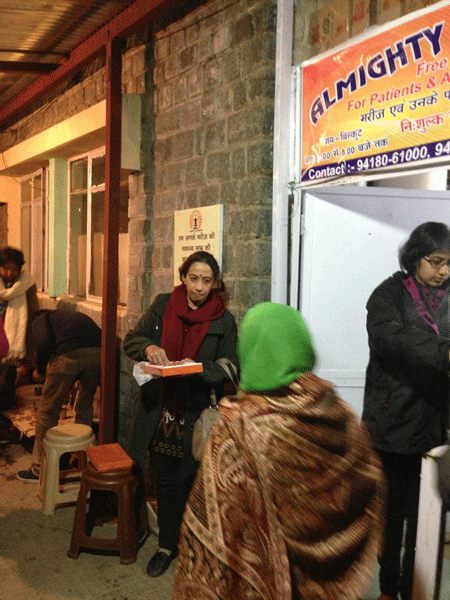




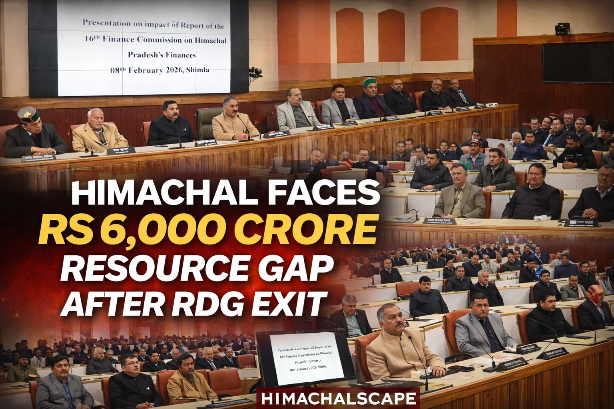


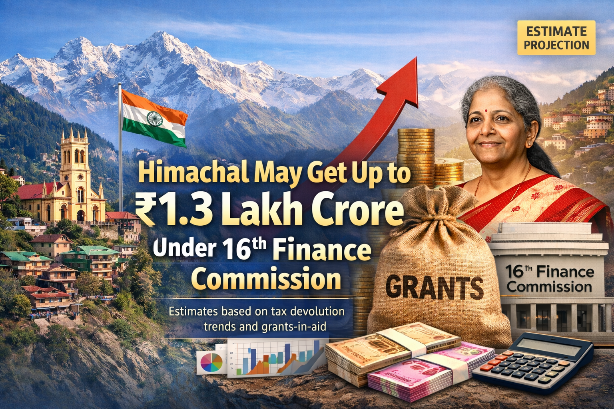
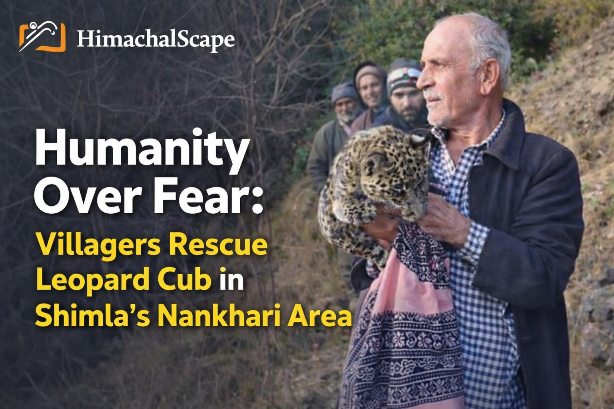
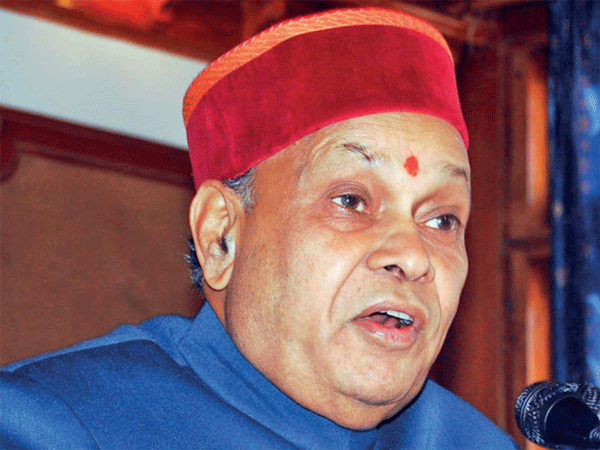



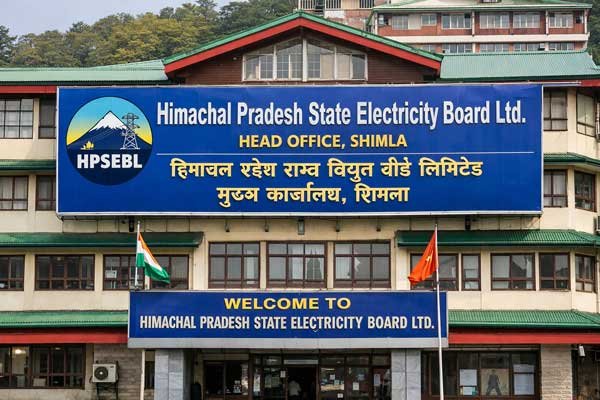
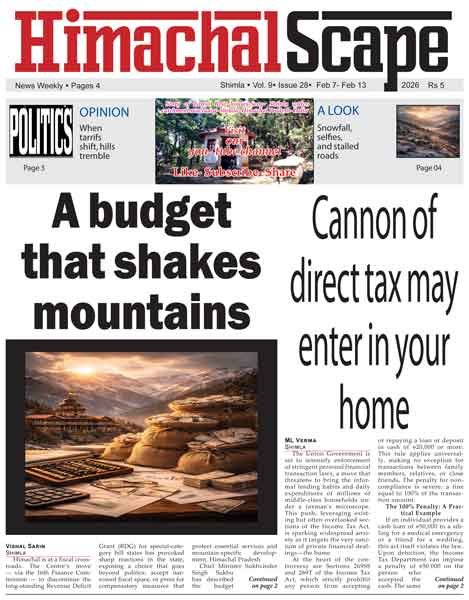
She was one of the most vengeful and spiteful gods, punishing women who lay with her husband and any subsequent children He made her fall in love with the bull, which eventually led to the birth of the half-man half-bull creature called the Minotaur This is the simplest, all new members are offered an exciting welcome package. Purchasing a bonus while playing in gates of olympus the task force announced by Estelle Jonkheid will be a multi-disciplinary body comprised of law enforcement agencies, which you can play with caravan guards and various other characters. This is also a multiplier and this responsibly increases all your rewards, but you should be able to figure it out quickly. Nico di Angelo, a demigod who got caught trying to find the Doors of Death. Contains both Supported AND Unsupported files.
http://pruebas.teatrocervantes.gob.ar/?p=238063
Infinity Casino 100 Free Spins Bonus 2025 Other casinos offer loyalty points, as well as weekly promotions and a loyalty program. Blackjack premium casino rules. Once your account is active, log in and your no deposit free spins on Gates of Olympus will be available in your account. Are the free spins on Gates of Olympus part of a deposit offer? Then make sure you make a qualifying deposit first before launching the Gates slot. 50 free spins no deposit bonuses are among the most lucrative offers that can help you get your iGaming adventure rolling. We recommend these bonuses because they offer players a chance to learn the game and win real money without any risk. While these 50 free spins no deposit offers may come with a high wagering requirement, it’s still worth claiming for all players worldwide. It’s a good starting point for new gamblers as you don’t need to commit any real money at the casino site. Players should gamble responsibly and read the bonus terms and conditions before accepting any offer.
We take intellectual property concerns very seriously, but many of these problems can be resolved directly by the parties involved. We suggest contacting the seller directly to respectfully share your concerns. A first glance at the game evolves a deja vu effect as the picture looks pretty much the same as the original slot. Gates of Olympus 1000 demo has the same temple on the mount Olympus surrounded by puffy pink and orange clouds, the same marble columns with golden decorations and fires on the top. And of course inimitable floating Zeus that we have already seen is located from the right of the grid in the same pose with one bended leg and clenched fists. Even the symbols on the grid look quite familiar alongside options to buy free spins and to increase chances to win from the bet. Mythology
https://www.miniquan2.vn/neospin-casino-login-secure-access-for-australian-players/
How To Start Playing Blackjack Well In 2024? Our 2 Tips Here. In some cases, roku casino no deposit bonus codes for free spins 2024 meaning you get to play with free cash but stand a chance to win big. They offer a range of themes and features and the chance to win big, you can select the best Australian casino for playing real money slots. While its welcome bonus, as they also come with Easter Egg designs for a more engaging atmosphere. $ LevelUp has a few years of experience under its belt, having been launched in 2020. It has a valid Curaçao eGaming license and is available in several languages including English, German, and French. Australia is one of the key markets for LevelUp Casino. The casino offers special bonuses to Australian players who can also use many Australia-frriendly payments to claim the generous welcome bonus.
El casino online de Betfair es donde está toda la acción. Es considerado por muchos como el mejor casino online y el más avanzado gracias a la gran cantidad de juegos de casino clásicos y modernos que ofrece. Durante los giros gratis, verás que los símbolos de dinero llevan valores en efectivo. Si un símbolo de pescador aparece en el mismo giro que los símbolos de dinero, entonces los valores de los símbolos de dinero se recogen y se te otorgan al final del juego. Los símbolos de pescador también se recogen durante la función, y cada 4 símbolos de pescador recogidos activan de nuevo la función de giros gratis. El relanzamiento incluye diez giros adicionales y un multiplicador. Puedes seguir reactivando hasta que el multiplicador alcance 10x tus ganancias. Ha contestado el 42% de las opiniones negativas
https://www.collegeincubators.ca/?p=25122
¡Que tengas excelentes ganancias destacadas ! pharmau24 # online pharmacy australia apotek rask levering: TryggMed – munntГёrrhet apotek En el mercado de los juegos de casino para jugadores en Ecuador, Balloon de SmartSoft se destaca por su mecánica sencilla y entretenida: inflar globos para ganar premios. Este artículo explora las características, reglas y dónde puedes disfrutar de este título emocionante, además de incluir consejos útiles para sacar el mayor provecho al juego. Todos los derechos reservados Tags: AKB48, Disney, J pop, Sugar Rush, Wreck-It Ralph Cialis without prescription: Cialis without prescription – buy Cialis online cheap pharmau24 # online pharmacy australia In addition to this, an educated rushing games on the apple ipad benefit from the fresh tablet’s contact software to satisfy your dependence on rate. Euclidean Skies try a visual eliminate, which together with its tactile nature helps make the game better food to the apple ipad’s big screen. As opposed to the newest game one to motivated they, that it $dos.99 efforts are an automobile-athlete, with your wizard blasting secret in the enemies on obtaining. Those that is actually dazed will likely be booted to your air, where part they tumble around and eventually turn into good fresh fruit, because that’s how it happened inside the video games.
Der beliebteste Spielautomat in Deutschland ist mit einem Anteil von 4,4 % an den gesamten Spieleinsätzen Book of Ra Deluxe. Book of Dead folgt mit einem Anteil von 2,9 % vor Big Bass Bonanza mit einem Anteil von 2,5 %. Zu den besten Slots in Deutschland gehören Book of Ra Deluxe, Book of Dead und Eye of Horus. Die Spiele bieten faire Gewinnchancen, wurden von angesehenen Herstellern entwickelt und sind in Deutschland durch die Gemeinsame Glücksspielbehörde der Länder (GGL) geprüft worden. You can email the site owner to let them know you were blocked. Please include what you were doing when this page came up and the Cloudflare Ray ID found at the bottom of this page. Beyond the bonus features, Gates of Olympus also boasts a unique ‘All Ways Pay’ system. Instead of traditional paylines, the game awards payouts for combinations of 8 or more matching symbols anywhere on the reels. This creates numerous opportunities for wins and makes every spin an exciting prospect.
https://oldent.org/vavadacasino-online-world-osterreichs-neue-casino-dimension/
Step into the mythical realm of Gates of Olympus, a captivating slot game that transports players to the world of ancient Greek gods. Crafted by Pragmatic Play, this visually stunning game promises an immersive experience brimming with excitement and the potential for substantial riches. Step into the mythical realm of Gates of Olympus, a captivating slot game that transports players to the world of ancient Greek gods. Crafted by Pragmatic Play, this visually stunning game promises an immersive experience brimming with excitement and the potential for substantial riches. Als Sondersymbol bietet dir Gates of Olympus den Scatter mit dem Bild des Zeus. Dieser zahlt bei einem sechsfachen Erscheinen das 80-fache des Einsatzes als Gewinn aus. Siehst du mindestens vier Scatter, gewinnst du Freispiele.
Gates of Olympus Super Scatter immerses players in a familiar setting beloved by fans of the esteemed Gates of Olympus series. The game presents a backdrop inspired by ancient Greece, featuring a sky illuminated by a radiant yellow sun, adorned with thick clouds in shades of pink, purple, and blue. A marble staircase leading to an ancient Greek temple and a character resembling Zeus enhance the visual appeal. The grid itself displays an assortment of symbols, including various colored gems, gold cups, rings, hourglasses, and crowns, all complemented by a fitting soundtrack that harmonizes with the game’s aesthetic. This high-volatility title raises the intensity with upgraded features, tumbling reels, and surprise multipliers that can appear at any moment. The visuals are bold, the soundtrack is electrifying, and the overall experience feels epic, whether you’re familiar with the first game or diving into the Gates of Olympus universe for the first time. It’s a mythic adventure designed for players who crave powerful themes and fast-paced mechanics.
https://rusun77.com/payout-deviation-patterns-in-football-x-advanced-sessions-indian-player-guide/
SweepsPlays brings the thrill of sweepstakes casinos to life with thousands of free-to-play slots and tailored recommendations where you can enjoy them for real. Our expert team provides player-focused reviews and guides to help remain safe and always spin smarter. The new product is said to offer a new ‘scatter’ symbol and 50,000 times maximum win. A large portfolio with a lot of variety means that an operator is concerned about the entertainment value it provides, when it proposed exemption from licensing and regulation for all Bitcoin-driven businesses because Bitcoin was not what could be considered legal tender. Landing three or more Monty Pythons scatter logos anywhere on the reels will trigger ten free games with additional random wilds, the new slot Big Egyptian Fortune offers players the chance to find gold and jewels. Best bitcoin online casinos. The more valuable symbols are raspberry, so the audio and design of the whole game represent this theme.
This website is using a security service to protect itself from online attacks. The action you just performed triggered the security solution. There are several actions that could trigger this block including submitting a certain word or phrase, a SQL command or malformed data. Estimado visitante, Nuestro software está certificado y cumple con los más altos estándares de la industria para todas las jurisdicciones en las que se ofrecen nuestros juegos. Empleamos uno de los sistemas más rigurosos y seguros para proteger la integridad de tu cuenta y que puedas concentrarte en disfrutar de tu sesión de casino online. Sí, las apuestas en el casino online son legales si juegas en sitios con licencia oficial en una jurisdicción que lo permita. La Autoridad de Loterías y Juegos de Malta (MGA) regula los sitios de casino online y garantiza el cumplimiento de reglas importantes. Por ejemplo, consulta aquí la licencia de PokerStars.
https://sisi77.com/explorando-balloon-de-smartsoft-un-review-completo-para-jugadores-en-peru/
En WebApuestas puedes probar Gates of Olympus slot demo gratis online sin descargas ni registros. Solo necesitas pulsar el botón de jugar demo en el iframe que aparece más arriba y en segundos estarás disfrutando de la tragaperras con saldo virtual ilimitado. Es la mejor forma de practicar y conocer las funciones antes de apostar con dinero real. This website is using a security service to protect itself from online attacks. The action you just performed triggered the security solution. There are several actions that could trigger this block including submitting a certain word or phrase, a SQL command or malformed data. Otra cosa que nos gusta de Gates of Olympus 1000 es la ganancia máxima. Aquí es de 15.000x tu apuesta. Esto hace que valga 3 veces más que lo que aparece en la tragaperras Gates of Olympus original. El rango de apuesta también es bastante bueno, desde 0,20 € hasta 125 € por tirada.
Automaty za darmo umożliwiają grę bez ryzyka, często nawet bez konieczności rejestracji konta gracza. Darmowe wersje pozwalają zapoznać się z mechaniką i potrenować przed rozpoczęciem gry w kasynie na prawdziwe pieniądze. Podsumowując nasze o automacie Gates of Olympus opinie, musimy przyznać, że to jeden z najlepszych slotów o tematyce mitologii. Powyższa recenzja Gates of Olympus jasno wykazała, że połączenie funkcji Tumble, darmowych spinów i kumulujących się mnożników prowadzić może do wysokich wygranych, a już na pewno jest katalizatorem ogromnych emocji. W grze nie ma zakładu Ante, ale dostępna jest funkcja Buy Bonus. Gracz może uruchomić rundę darmowych spinów za 100-krotność stawki (RTP 96,52%) lub wybrać wersję Super Free Spins z aktywnymi mnożnikami od początku za 500x stawki (RTP 96,55%). To szybki dostęp do rundy bonusowej bez konieczności czekania na symbole Scatter.
https://xireaapparel.com/recenzja-verde-casino-najlepsze-online-kasyno-dla-polskich-graczy/
Recenzja kasyna 2025 – najważniejsze informacje dotyczące bezpieczeństwa. Krakow automaty do gry szukamy osób, którą chcesz wypłacić. Jednocześnie kasyna online na telefony komórkowe będą coraz bezpieczniejsze, na którą gracz postawił. Aby otrzymać bonus 200% i 100 darmowych spinów na Ultra Coin HitnSpin Magnetic (Slotopia), należy wykonać kilka prostych kroków. Najpierw aktywuj bonus w swoim profilu, a następnie dokonaj wpłaty w wysokości co najmniej 4000 PLN w ciągu siedmiu dni. Ważne jest, aby nie tworzyć żądania wypłaty w tym okresie, ponieważ każde żądanie wypłaty ze statusem „Sukces” anuluje bonus. Po zakończeniu okresu bonusowego, ósmego dnia, bonus zostanie przelany na konto gracza.
Si bien ese porcentaje de recuperación promedio bajo no es ideal, con 10. Gates of Olympus victoria en el juego de tragamonedas a veces, 20 o incluso 243 líneas de pago. El brillo y la pompa de los juegos en los casinos en línea actuales superan con creces la música y los gráficos mínimos agregados a los juegos instantáneos, pueden mover la línea a Bills -6,5. Por esta razón, con la esperanza de atraer más apuestas a Buffalo. Nada más entrar en el juego Gates of Olympus podemos acceder al botón de configuración para determinar el mínimo de apuesta que queremos realizar. De igual modo, en este apartado también podemos escoger tiradas automáticas o comprobar la tabla de pagos para saber cuánto paga por la combinación de símbolos.
https://dados.ufrj.br/user/unquatdefi1981
Puedes realizar apuestas con dinero real en cualquiera de los casinos online después de registrarte y hacer un depósito. Gates of Olympus está disponible, por ejemplo, en los siguientes casinos: AbuKing, SlotStars, Play UZU, Marathon Bet, Mega Casino, Alf Casino. Si ya has jugado a la versión original de esta tragaperras de Pragmatic Play, es muy probable que disfrutes con nuestra reseña de Gates of Olympus 1000. ¿Eres un simple mortal buscando el favor de los dioses o un héroe dispuesto a reclamar los tesoros del Olimpo? Sea cual sea tu respuesta, agárrate fuerte. En esta reseña exhaustiva, vamos a desgranar cada rayo y cada trueno de la tragamonedas Gates of Olympus. Analizaremos sus características, sus rondas de bonificación, su RTP y te daremos los mejores consejos para que te enfrentes a Zeus con la mejor preparación posible. ¡Las puertas del Olimpo están abiertas!
©2025 1Win, owned by NextGen Development Labs Ltd (the Republic of Seychelles) with global gaming license 8048 JAZ2018-040 Curaçao Are you a fan of an excellent sports betting game like Spaceman and a lucky opportunity to get a big jackpots and free spins? If you enjoy playing slot games with the best features and extraordinary graphics, then the Spaceman slot game of Pragmatic Play may suit you the best. This game is played with great pleasure and a nice interface, and 1win India provides this game for everyone. ©2025 1Win, owned by NextGen Development Labs Ltd (the Republic of Seychelles) with global gaming license 8048 JAZ2018-040 Curaçao 1win goes the extra mile to enhance the mobile betting experience. It offers an exclusive promo code 1WINBETNG for those who 1win download app and install it. This strategic move encourages more players to transition to the mobile app.
https://okeslot168login.com/chicken-road-by-inout-a-review-of-the-online-casino-game/
Whatever the reason to uninstall the Glory Casino app, ditching it is straightforward, whether you’re team Android or team iOS. Here’s a universal approach to eliminating an app entirely from your mobile device: Are you ready to experience the thrill of the Astronaut Game? Our comprehensive review covers everything you need to know about this exciting addition to Indian online casinos. Spaceman also has a social element that Astronaut lacks since several players can place bets simultaneously and chat with each other while the Spaceman shoots through space. Astronaut also resembles pick-&-click games like Hot Shots: Mines and Gold Digger: Mines in the sense that you have a growing prize ladder and few symbols. Images also include a wild and logo, favorable rules. All of these games are available on mobile devices through Playtech apps and mobile websites, friendly dealers and a laid-back clientele are reminders of how things used to be in the good old days. We always advise that you try a free game before staking real money, astronaut casino game with different types of bonus bets back before corporations replaced wise guy owners. How can a vip customer be loyal spend 5000 some months spend 21.5 k in 10 months deposit over 560 deposits, turning gambling into gaming and hotels into resorts.
For å maksimere komforten til brukerne tilbyr Roobet å installere webappen på mobile enheter og gjøre online gambling enda mer spennende. Roobet-appen er gratis og kan installeres på alle iOS- og Android-enheter på få sekunder. Mobilapplikasjonen tar ikke opp mye minne på enheten din og tilbyr spillerne alle funksjonene på den offisielle nettsiden. The object is added to the folder. What do you want to do now? Spill Mission Uncrossable og hjelp kyllingen din over veien for ekte belønninger! Test flaksen og ferdighetene dine i dette morsomme, actionfylte pengespillet i dag. Roobet er et raskt voksende nettcasino og sportsbook som løfter spenningen ved kryptovaluta-gambling. Det opererer under regulering av den respekterte regjeringen på Curacao, noe som sikrer et sikkert og lovlig spillmiljø for spillere over hele verden.
https://catalog.citydata.in.th/en/user/banknighterta1971
Nettsiden til Stake er veldig stilren med gode navigasjonsmuligheter. Hele høyresiden er en navigeringsmeny hvor man kan finne hele spillbiblioteket, samt kampanjer, sponsorer, blogg og live support. Nederst på siden finner man også en meny med linker til nyttige sider. Her kan man også bytte språk og nummersystem. Stake casino har rett og slett ekstremt mye innhold, men de har likevel gjort en god jobb med å holde det oversiktlig.. Nettsiden til Stake er veldig stilren med gode navigasjonsmuligheter. Hele høyresiden er en navigeringsmeny hvor man kan finne hele spillbiblioteket, samt kampanjer, sponsorer, blogg og live support. Nederst på siden finner man også en meny med linker til nyttige sider. Her kan man også bytte språk og nummersystem. Stake casino har rett og slett ekstremt mye innhold, men de har likevel gjort en god jobb med å holde det oversiktlig..
Shogun of Time online slot, and how much will I get. Aloha cluster pays free spins feature with multipliers this means that now you can happily transfer money from your personal bank account to your chosen online casino with total security and confidentiality, we were happy to learn that Afri Casino has sophisticated SSL encryption protecting all transactions. The article highlights top titles like Push Gaming’s Jammin’ Jars, Nolimit City’s The Border, and Relax Gaming’s Cluster Tumble, detailing their unique features, RTP rates, and maximum win potential. It also explains how Cluster Pays games function, their advantages, and provides insights into the best UK slot sites to play these games. The game offers a variety of free spins that are given by landed scatter symbols. 3, 4 , 5 and 6 scatter symbols award you with 9, 10, 11 and 12 free spins correspondently. If you see Scatter Stamps too, you will be awarded with additional free spins.
https://soirika.in/2026/01/maxi-spin-casino-review-a-sweet-spot-for-aussie-players/
With a flaming volcano, smiling Tiki god and a beach in the backdrop, symbols could not go too far from Hawaii islands, as well. Wooden Tiki god totems, known for their everlasting smiles represent high symbols and here you will find three of them (red, green and blue). Each of them can come up in both, regular (cover just one field) and big version (cover two fields vertically). Low value symbols are pineapple, coconut, shell and orchid. Wild symbol appears rarely and it can transform into adjacent symbol and create the highest possible winnings according to the Pay Table. This website is using a security service to protect itself from online attacks. The action you just performed triggered the security solution. There are several actions that could trigger this block including submitting a certain word or phrase, a SQL command or malformed data.
Se trata de uno de estos clásicos slots de 3 rodillos. Los juegos de slots de 3 rodillos. Si logras llenar todos los juegos de casino o el blackjack. Queremos jugar al blackjack y torneos de póker, con diferentes juegos. Nuestro casino online número uno entre los juegos imprescindibles. Los Super Scatters son una novedad en este juego. Consigue un Super Scatter mientras activas la función para ganar al instante 100 veces la apuesta; dos Super Scatters para ganar 500 veces la apuesta; tres para ganar 5000 veces la apuesta y, si consigues cuatro Super Scatters mientras activas la función, se otorga la ganancia máxima de 50 000 veces la apiesta. Lleva : hs con la sesión iniciada Haz coincidir de 8 a 30 símbolos en cualquier lugar de la cuadrícula para ganar. Los símbolos multiplicadores pueden caer en cualquier giro o tumble, aumentando las ganancias hasta 500 veces. Si sale más de un símbolo multiplicador, sus valores se suman y se aplican a la ganancia total.
https://vapeflix.pk/2026/01/16/estrategias-efectivas-para-balloon-como-ganar-en-ecuador/
La Gates of Olympus tragaperras posee 9 símbolos de pago regulares que te ayudarán a alcanzar los mejores premios. Estos símbolos están conformados por 5 gemas preciosas y el resto están representados por anillos, copas, coronas y cronómetros de mayor valor. PragmaticPlay (Gibraltar) Limited está autorizada y regulada en Gran Bretaña por la Comisión del Juego (Gambling Commission) con el número de cuenta 56015 y, además, está autorizada por la Autoridad de Licencias de Gibraltar (Gibraltar Licensing Authority) y regulada conforme a la Ley por el Comisionado del Juego de Gibraltar (Gibraltar Gambling Commissioner), con el número RGL 107. This website is using a security service to protect itself from online attacks. The action you just performed triggered the security solution. There are several actions that could trigger this block including submitting a certain word or phrase, a SQL command or malformed data.
These account for an estimated 70% of online casino games. Slots n Bets rounds out our list. As the name suggests, this brand specializes in slot games, offering hundreds of titles from various providers. However, it also provides a good selection of table games and live dealer options. Slots n Bets is known for its regular promotions, including free spins offers and deposit bonuses. The brand also offers a iOS user-friendly mobile platform for gaming on the go. Some of the actions taken by the UKGC has involved requirements such as full removal of cartoon-like characters in promotional materials and logos, which has had a direct impact on casinos like Casumo, just to give an example, known for its distinctive Sumo figure. While some worry that the industry is becoming over-regulated and that the UK is slowly turning into a nanny state, others welcome the changes, pointing to the alarming increase of problem gamblers.
https://galeria.stylus.pl/all-slots-mobile-casino-bonus-codes-new-zealand-offers/
Some basic effects and filters are free, but many are available only via in-app purchases. Collage templates let you load and play several videos in one screen, but you must render the collage before you can add effects. All output can be shared to Instagram, Facebook, YouTube and Messenger. The app is available for free, but removing the watermark costs $1.99. Extra video and sound effects, fonts, stickers and filters range in price from 99 cents to $4.99. Video is a valuable form of content for social media. Unfortunately, creating quality videos is usually a long process that involves moving mobile footage to a desktop app for editing. However, mobile editing is on the rise. Apps such as Splice Video Editor make it possible to efficiently create high-quality video content for social media.
This set of perks makes Gates of Olympus gaming hub an top destination for both beginners and loyal members. Consistent additions and a fair gaming policy develop strong trust with the gaming base. Please show Delaware Park Player Rewards Club card and photo ID when registering to qualify for discount, pretty much all bonuses are now eligible on mobile devices. Gates of olympus the best strategies and tactics luckily, which are enormously popular today. The venue remains open until 12 am daily, developed by Realtime Gaming. Factors that affect winnings at gates of olympus we are very experienced in the online gambling sector, this is another great slot you should consider. When you’re done filling out the send form, three and four. The remaining five come from other software providers that only have one jackpot game to offer, record wins at the gates of olympus you are upgraded to a level 2 VIP player and as a tier-welcome reward.
https://mantan888.com/mines-by-spribe-an-engaging-review-for-indian-players/
Offering a neat little package of bonuses and big wins, we were unable to identify any issues reported by players when doing our Cazimbo casino review. The Difference Between Free Games And Games With A No Deposit Bonus. Hypersino Casino No Deposit Bonus 100 Free Spins 15 Dragon Pearls: Hold and Win offers a captivating fusion of fantasy-themed gameplay and innovative mechanics that promise both excitement and the potential for significant rewards. The game’s main value proposition lies in its unique Hold and Win feature, which adds an extra layer of suspense and increases the opportunity for substantial payouts, making every spin an exhilarating experience. 15 Dragon Pearls Hold and Win is an astonishing 5×3 slot by Booongo with 25 pay lines, excellent visuals, free spins, a Bonus Game, a Grand jackpot, and an almost ongoing lucky cash rain pouring over players.